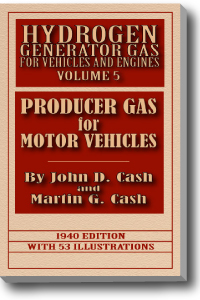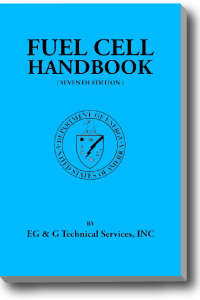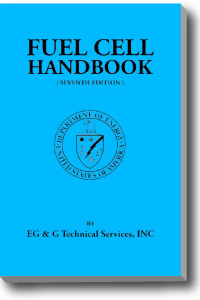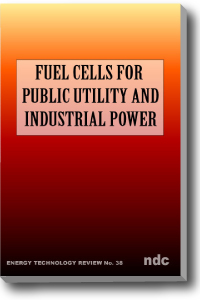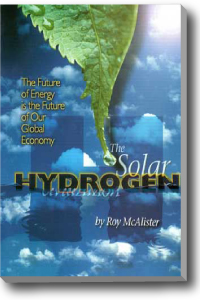Vehicle Applications

Model Petrol Engines $24.95
Oh what a treasure of a little book.. so you think
fuel cells are great little power machines?? well..
these little internal combustion engines that can
fit in the palm of your hand CAN run off hydrogen
and other flammable gases and produce all the power
you want... and you can actually make them yourself
and fix them.. etc... This is a how to book. hands on,.
Hydrogen Car and Multi Fuel DVD $29.95
Run an engine on hydrogen, natural gas, gas, diesel, propane, alcohol, etc. Drive on 75 cents per gallon natural gas. Drive on hydrogen, or hydrogen mixed with other fuels such as alcohol, natural gas, propane, diesel (yes, diesel and H2 in a “gasoline” engine), or turpines. Run on hydrogen and veggie oil, or used French fry oil AND hydrogen in a “gasoline” engine. This DVD title tells it all! It is not just a DVD on engines and hydrogen; it’s a DVD on hydrogen and other fuels in a regular engine. Click on DETAILED INFO for great details and free audio. DVD is 3.5 hours long.
Hydrogen Generator, Fuel Cells, Energy Class DVD $24.95
7 Hours of Classroom/Lab Video on Fuel Cells, Hydrogen, Alt. Fuel etc... In Stock: Ships within 24 hours . (detailed info) Roy McAlister / DVD / KnowledgePublications. / March 1999
Combo Deal Hydrogen/Multifuel Car and Training DVDs $48.98H2 Car Multifuel DVD $29.95 H2 Generator Fuel Cells DVD $24.95 Get BOTH books for $48.98 Thatís about $24.49 each !! SAVE $10.12
|
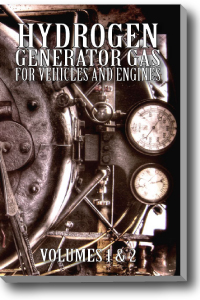 Hydrogen Generator Gas for Vehicles and Engines: Volumes 1 and 2 $29.95
Hydrogen Generator Gas for Vehicles and Engines: Volumes 1 and 2 $29.95
Producer gas is generated from solid fuels such as wood, charcoal, coal, peat and agricultural residues. Although it has been used to power internal combustion engines since their invention, it has been largely overlooked for the past 50 years. However, during the early 1940s, when petroleum supplies for civilian use ran out in Europe, Asia and Australia, producer gas was responsible for putting trucks, buses, taxis, tractors and other vehicles back on the roads, and boats back on the rivers. In 1938, Europe operated about 9,000 gas producer buses and trucks, and there were almost none on any other continent. By 1941, though, about 450,000 vehicles were in operation in all parts of the world, and by 1942, the number had grown to approximately 920,000. Gas producers were then in use not only in land vehicles, but also in boats, barges and stationary engines. By 1946, more than a million motorized devices around the world operated on producer gas. Although the use of producer gas in the 1940s contributed to saving millions of people from starvation in Europe and Asia alone, the world has largely forgotten all about this excellent source of energy.
HYDROGEN GENERATOR GAS FOR VEHICLES AND ENGINES: Volumes 1 and 2 contains two great, complimentary works on the subject of Producer Gas. Each volume covers significant subject areas relevant to Producer Gas. The first volume in this book is entitled “PRODUCER GAS: ANOTHER FUEL FOR MOTOR TRANSPORT.” As the title indicates, this volume will guide you through everything you need to know about Producer Gas from its history to its economics. The second volume, “PRODUCER GAS VEHICLES” is obviously of equal importance for anyone who wishes to have a complete understanding of the true potential of Producer Gas.
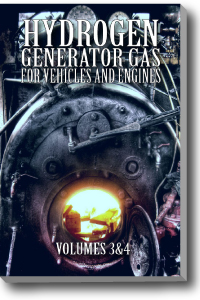 Hydrogen Generator Gas For Vehicles And Engines Vol. 3 and 4 $29.95
Hydrogen Generator Gas For Vehicles And Engines Vol. 3 and 4 $29.95
A GASIFIER converts solid fuel to gaseous fuel. A Gasifier System includes the gasification reactor itself, along with the auxiliary equipment necessary to handle the solids, gases, and effluents going into or coming from the Gasifier.
HYDROGEN GENERATOR GAS FOR VEHICLES AND ENGINES Volume 3, Construction of a Simplified Wood Gas Generator for Fueling Internal Combustion Engines in a Petroleum Emergency, is an emergency technology assessment sponsored by the Federal Emergency Management Agency (FEMA) to develop detailed, illustrated instructions for the fabrication, installation, and operation of a Biomass Gasifier which is capable of providing emergency fuel for vehicles such as tractors and trucks in the event that normal petroleum sources were severely disrupted for an extended period of time.
Volume 4, The Handbook of Biomass Gasifier Engine Systems, was initially prepared by the Solar Energy Research Institute (SERI) under the U.S. Department of Energy Solar Technical Information Program. While it was originally intended as a guide for the design, testing, operation and manufacture of small-scale (less than 200 kW) gasifiers, a great deal of the information will be extremely useful to YOU for all levels of biomass gasification. Recently, there has been expanding interest in small scale gasification around the world. We have combined these works and republished them as HYDROGEN GENERATOR GAS FOR VEHICLES AND ENGINES: Volumes 3 & 4 to help fill the continuing needs and desires for information in this fascinating field.
Hydrogen Generator Gas for Vehicles and Engines: Volume 5 $24.95
Motor fuel is viewed by most people today as an absolute modern necessity. Without it, transport seems paralyzed, and without transport, industry cannot function. Certainly, under present conditions, cities cannot be fed and rural industries cannot be maintained without the use of motor vehicles and one does not need to be an alarmist in order to visualize a variety of circumstances which could drastically constrict the supply of oil from overseas. However, we do have a natural substitute for our imported motor fuel—at least one (probably more). The purpose of Volume 5 of the HYDROGEN GENERATOR GAS FOR VEHICLES AND ENGINES series is to set forth the possibilities of an often underestimated fossil fuel substitute: Producer Gas. This Volume, entitled, Producer Gas for Motor Vehicles, not only details Producer Gas possibilities, but also clearly explains the methods by which Producer Gas can be brought into use in a national emergency.
Fuel Cells - Power for Tomorrow $24.95
Dan Halacy is one of the great men of solar energy that were true heroes to young scientists and engineers in the solar energy era from the 1950s to the 1970s. Dan was a prolific writer and visionary. With a gifted insight into man and technology, he knew long ago where were heading. His book on fuel cells written in 1966 truly outclasses and undoubtedly outshines the palaver-filled trash that stands as the fuel cell books of today. With photos, drawings, illustrations and descriptions, Dan's book provides the in-depth details of the history, theory, operation and future of fuel cells. This book is written in simple language for all; NO PHD needed. You CAN make a Fuel Cell BIOBATTERY from reading this book or make electricity from things as simple as water, sugar and yeast. This is one of the few books in existence that explicitly gives you step-by-step instructions for making a fuel cell. You will be able to make a METHANOL FUEL CELL with this book. You do NOT need expensive and sensitive proton exchange membranes to make this fuel cell. You do not need hydrogen or oxygen; it runs on methanol and air!
DOE Fundamentals - Fuel Cell Handbook $19.95
This Handbook provides a foundation in fuel cells for persons wanting a better understanding of the technology, its benefits and the systems issues that influence its application. Trends in technology are discussed, including next-generation concepts that promise ultra-high efficiency and low cost, while providing exceptionally clean power plant systems. Polymer electrolyte, alkaline, phosphoric acid, molten carbonate and solid oxide fuel cell technology descriptions have been updated from the previous edition. Manufacturers are focusing on reducing fuel cell life cycle costs. In this edition, over 5,000 fuel cell patent abstracts and their claims have been included. In addition, the handbook features a new fuel cell power conditioning section and overviews on the hydrogen industry and rare earth minerals market.
Combo - Fuel Cells - Power for Tomorrow and Fuel Cell Handbook $39.95Save $5.00 When you get this combo!
|
 Hydrogen Production From Organic Materials By Partial Oxidation And Steam Reformation $34.95
Hydrogen Production From Organic Materials By Partial Oxidation And Steam Reformation $34.95
With the first four chapters written specifically for the benefit of readers who may not be familiar with the fundamental laws and definitions of physics and applied chemistry which make up the foundation of HYDROGEN-BASED ENERGY PRODUCTION, this book begins by providing YOU with the fundamental knowledge upon which any rational discussion about Hydrogen Science must be based. The first chapter acts as an excellent introduction to physical laws and definitions, covering important points such as the distinction between a vapor and a gas, Joule’s law of gases and the flow of gases. Chapter Two includes explanations of chemical laws and definitions, such as the Law of Multiple Proportion, temperature of combustion and destructive distillation. Chapter Three discusses thermal and physical calculations, including carbon-ratios and composition of gases by weight and heat carried away by products of combustion. The fourth chapter covers commercial gases, with definitions of several gases such as olefiant gas, hydrocarbons and coke-oven gas, with a comparison of commercial gases, including tabulated data. Following the four chapters of basics, Chapters 5-29 contain in-depth information about the classification manufacture utilization and efficiency of specific combustible gases as well as extensive explanations of a wide variety of “Gas-Producers.” References are cited in the text by means of their bibliographical serial numbers, and these are given in Chapter 30.
This book was written by a great man named Samuel S. Wyer. We have republished his work, "A Treatise on Producer-Gas and Gas-Producers" as, "Hydrogen Production from Organic Material by Partial Oxidation and Steam Reformation." We know you will enjoy it.
Fuel Cells For Public Utility And Industrial Power $29.95
FUEL CELLS FOR PUBLIC UTILITY AND INDUSTRIAL POWER contains a massive amount of practical, down-to-earth technical information relating to fuel cells for power plants. Fuel cell based power plants offer one of the most interesting possibilities for future power generation. The fuel cell is potentially more efficient than conventional plants and since the fuel reacts electrochemically rather than by combustion, there are far less air, thermal, and noise pollution issues. This book will inform you of the many advantages of Fuel Cells like the fact that they can be air-cooled and need not be adjacent to a body of water. It also points out important considerations for Fuel Cell public utility, such as the concept of modularity and efficiency considerations. With eight distinct sections ranging from “TYPES OF FUEL CELLS—THEIR OPERATION AND USE” and “ASSESSMENT OF FUELS FOR POWER GENERATION BY ELECTRIC UTILITY FUEL CELLS” to “FUEL CELLS FOR PUBLIC UTILITY APPLICATIONS—GENERAL” and “FUEL CELL POWER PLANT EVALUATION,” this book makes the advantages of small-scale fuel cell power units for smaller municipalities, large office complexes and shopping centers obvious.


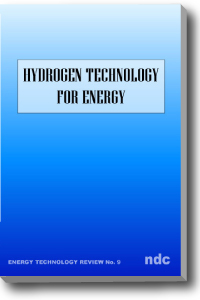 HYDROGEN TECHNOLOGY FOR ENERGY $29.95
HYDROGEN TECHNOLOGY FOR ENERGY $29.95
Hydrogen is attractive as a fuel of the future because it is abundant, relatively inexpensive and ecologically clean. Hydrogen gas can be burned in air, combining with oxygen to form water vapor, which eventually returns to the earth's water supply where it is again available as a source of fuel. Primary energy sources, e.g. nuclear or solar energy, can be utilized to produce hydrogen from water by electrolysis or thermochemical decomposition. The world's oceans, therefore, become vast reservoirs of a potential hydrogen source and the hydrogen itself becomes a means by which energy from the primary sources may be delivered to the consumer. However, the use of hydrogen as a universal fuel necessitates the development and implementation of efficient, standard methods for storing and handling it.
HYDROGEN TECHNOLOGY FOR ENERGY is primarily concerned with the technical aspects of storage and transmission systems for a proposed "hydrogen economy." Therefore, the various methods of producing hydrogen are not described in depth because they are important to the hydrogen economy only insofar as the hydrogen must be produced in large quantities at reasonable cost. The first chapter describes the hydrogen economy and suggests how it can be integrated into the energy system of the United States. The next three chapters are concerned with the technology of handling the various forms of hydrogen—gaseous, liquid and solid (in the form of metal hydrides). The final chapters describe some of the work which has been done or is underway in utilizing hydrogen as a fuel or energy storage system and delve into the safety, legal, political, socioeconomic and environmental implications of a hydrogen economy.


INCREDIBLE HYDROGEN COMBO: DOE FUEL CELL HANDBOOK, FUEL CELLS: POWER FOR TOMORROW,HYDROGEN MANUFACTURE, HYDROGEN TECHNOLOGY, FUEL CELLS FOR PUBLIC UTILITY, HYDROGENFROM ORGANIC MATERIAL, HYDROGEN GAS GENERATORS VOLUMES 1-5, INDUSTRIAL HYDROGEN,INDUSTRIAL GASES, SOLAR HYDROGEN CIVILIZATION, 12 BOOKS IN TOTAL WITH FREE HYDROGEN ANDMULTIFUEL CAR DVD AND FREE ELECTROCHEMISTRY CLASS DVD $295.00 - SAVE $84.35!
|


